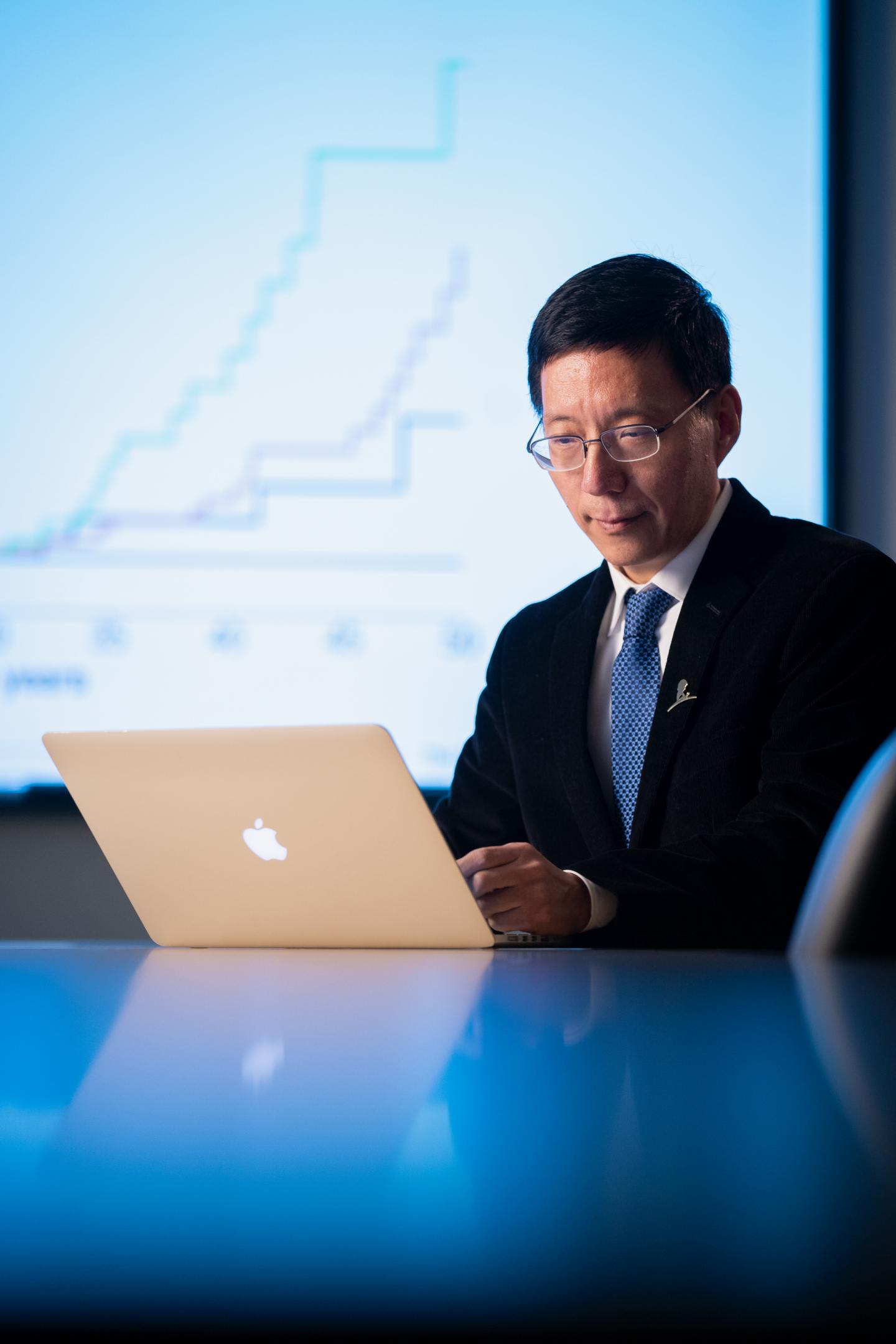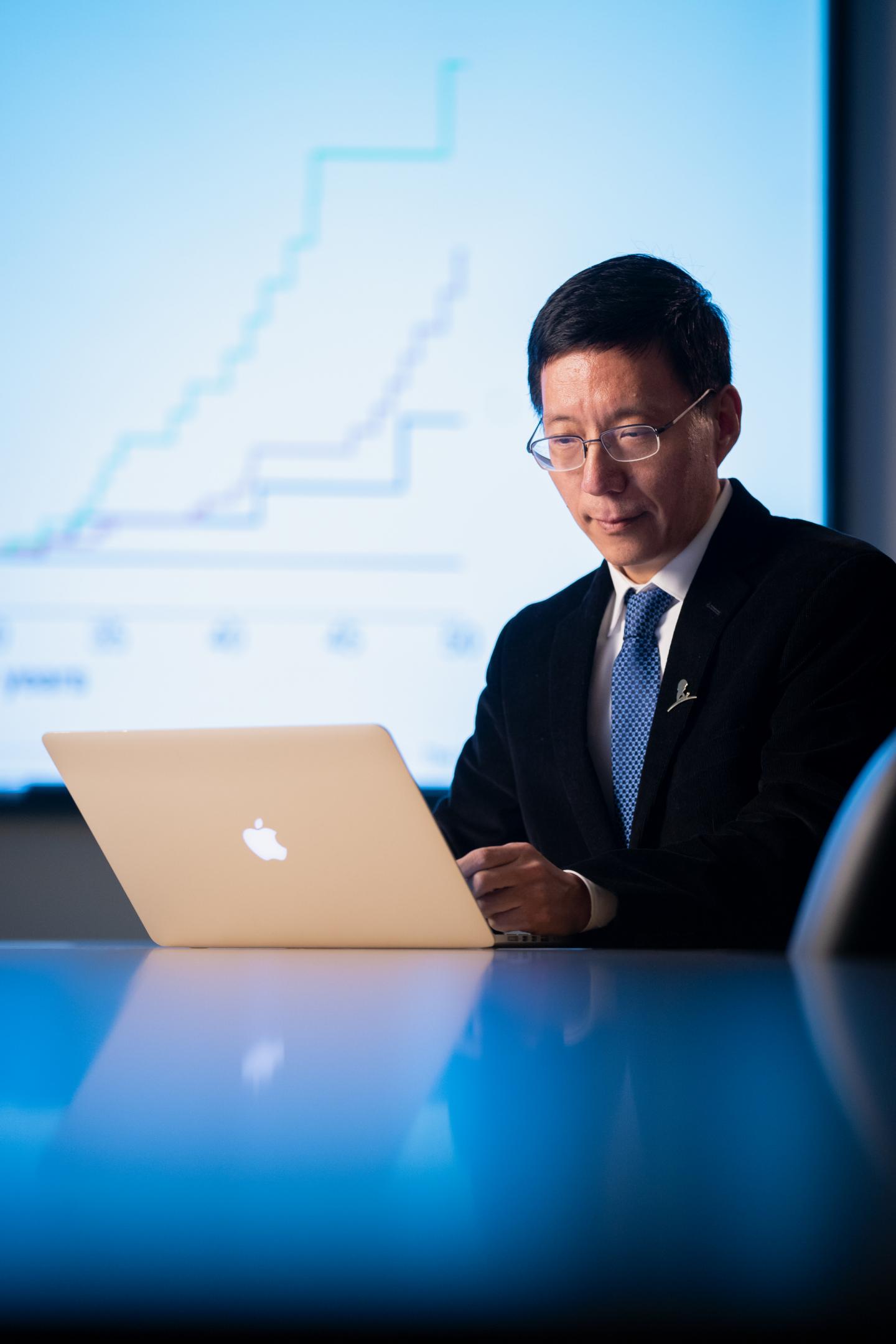
Credit: St. Jude Children's Research Hospital
(MEMPHIS, Tenn. – Oct. 26, 2018) St. Jude Children's Research Hospital researchers have evidence that common genetic variations can help to identify pediatric cancer survivors who are at increased risk for developing breast cancer while relatively young. The findings appear today in the journal Clinical Cancer Research.
The research focused on the combined effect of 170 common genetic variations that individually confer a modest increased risk of breast cancer. The research showed for the first time that, together, they can leave female pediatric cancer survivors at as much as a two-fold increased risk of breast cancer compared to average survivors. The risk is greatest for survivors less than 45 years old.
"Female survivors of childhood cancer have among the highest rates of breast cancer of any group," said lead author Zhaoming Wang, Ph.D., an associate member of the St. Jude Department of Epidemiology and Cancer Control and the Department of Computational Biology. That risk has mainly been attributed to the late effects of pediatric cancer treatment, particularly chest irradiation, certain chemotherapy exposures, or the presence of rare mutations in breast cancer susceptibility genes.
For survivors at some of the highest risk, the collective effect of the common genetic variants is comparable to having a high-risk mutation in a breast cancer predisposition gene like BRCA1 or BRCA2, Wang said. The mutations are associated with a 2- to 100-fold increased breast cancer risk.
"This study provides a more complete picture of genetic breast cancer susceptibility among childhood cancer survivors," Wang said. "When combined with screening for rare mutations in breast cancer predisposition genes, these findings are expected to help identify high-risk pediatric cancer survivors who currently go unrecognized.
"The findings also suggest that personalized breast cancer surveillance and prevention for childhood cancer survivors is on the horizon," he said.
The research
This study involved 1,133 female St. Jude cancer survivors of European ancestry enrolled in the St. Jude Lifetime Cohort study (St. Jude LIFE). St. Jude LIFE brings survivors back to the hospital where they were treated as children for several days of assessments and screenings. The goal is to better understand and address challenges facing the nation's rapidly increasing population of pediatric cancer survivors. There were not enough eligible survivors of other racial and ethnic backgrounds to be included in the analysis.
The average age of survivors in this study was about 36 years old. All had undergone whole genome sequencing of their blood DNA. Among the survivors, 47 had been diagnosed with breast cancer at least once and four carried high-risk mutations in one of 11 breast cancer susceptibility genes.
The common genetic variants that were the focus of this analysis individually confer a modest 3 and 30 percent increased risk of breast cancer. A weighted risk score, known as the polygenic risk score, was calculated for each survivor. Previous research by Wang and others discovered these many common genetic variants and showed that the risk score identifies women in the general population at increased risk for breast cancer.
The results
The score proved similarly predictive for survivors' breast cancer risk. The risk was independent of established risk factors like chest radiation, chemotherapy exposures, or mutations in breast cancer predisposition genes.
"These findings suggest that including a risk score in screening would help identify more than 50 survivors in this study at high risk for breast cancer in addition to 34 carriers of predisposing mutations," Wang said. "These women would be candidates for more intensive breast cancer screening and follow-up."
The analysis showed that survivors with some of the highest scores, those in the top 1 percent, are about four times as likely to develop breast cancer as survivors with average risk scores.
Survivors with risk scores in the top 20 percent have about a three-fold increased risk for developing breast cancer compared to survivors with risk scores in the lowest 20 percent.
What's next
The results must be validated in additional pediatric cancer survivors before common genetic variations are used clinically to help guide their follow-up care.
###
The senior author is Leslie Robison, Ph.D., chair of the St. Jude Department of Epidemiology and Cancer Control. The other authors are Qi Liu, of the University of Alberta, Canada; Carmen Wilson, John Easton, Heather Mulder, Ti-Cheng Chang, Michael Rusch, Michael Edmonson, Stephen Rice, Matthew Ehrhardt, Chimene Kesserwan, Gang Wu, Kim Nichols, James R. Downing, Melissa Hudson, Jinghui Zhang and Yutaka Yasui, all of St. Jude; and Rebecca Howell, University of Texas, MD Anderson Cancer Center, Houston.
The research was funded in part by grants (CA021765, CA216354, CA195547) from the National Institutes of Health and ALSAC, the fundraising and awareness organization of St. Jude.
St. Jude Children's Research Hospital
St. Jude Children's Research Hospital is leading the way the world understands, treats and cures childhood cancer and other life-threatening diseases. It is the only National Cancer Institute-designated Comprehensive Cancer Center devoted solely to children. Treatments developed at St. Jude have helped push the overall childhood cancer survival rate from 20 percent to 80 percent since the hospital opened more than 50 years ago. St. Jude freely shares the breakthroughs it makes, and every child saved at St. Jude means doctors and scientists worldwide can use that knowledge to save thousands more children. Families never receive a bill from St. Jude for treatment, travel, housing and food — because all a family should worry about is helping their child live. To learn more, visit stjude.org or follow St. Jude on social media at @stjuderesearch.
Media Contact
Katy Hobgood Ray
[email protected]
901-595-0564
@StJudeResearch
http://www.stjude.org
Original Source
http://stjude.org/breast-cancer-genetics-survivors





